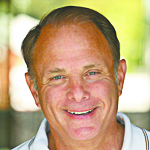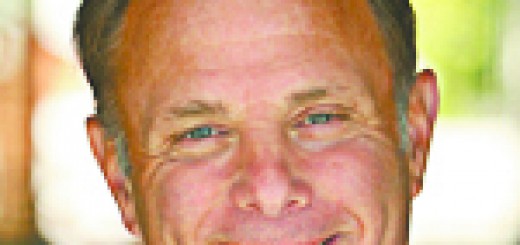If my grandmother were alive today, she would be 125, and she would still, no doubt, be walking around in her six-inch-high heels, the ones she asked to be buried in—and she’d have a Marlboro in her fingers. She demanded to be called Mum Mum because the term “grandma” suggested an older woman. That wasn’t going to work.
She smoked two packs a day, had a few shots of Johnnie Walker Black before noon and then would ask her doctor if she could put cream in her coffee, “or would that be too much cholesterol for a women of my age?” Not that she ever told anyone her age, but my previous estimate is in the ballpark.
Which reminds me: She loved baseball. She never missed a Mets game on TV. She knew the number of each player and their batting averages, but she really didn’t fully understand the sport. I once took her to Shea Stadium, but due to traffic we were almost an hour late. The scoreboard showed it was a scoreless game.
“Oh good,” she said, “We didn’t miss anything.”
Mum Mum was hard of hearing due to a childhood illness, and she was always adamant that her disability was not due to age. During meals at our house she spent a lot of time saying: “Speak more clearly!” “Don’t shout.” “Enunciate.” During the inevitable family spat, my father would sometimes whisper under his breath: “She can be such a pain in the butt.”
“You’re a pain in the butt, too,” she’d shout back. Yes, Mum heard exactly what she wanted to hear and nothing more.
She and my mother were always fighting on the phone. And, it was even harder for Mum Mum to hear when she couldn’t see the person talking. My irritated Mom could not successfully make a point without having to repeat herself several times. Once when I was a teenager, my mother slammed the receiver down in frustration. Half an hour later when I tried to call a friend, Mum Mum was still on the line, ranting, unaware she had been talking to no one.
Mum Mum was a passionate woman, not only about baseball, but about braille, a reading and writing system for the visually impaired that uses patterns of raised dots. Volunteers like my grandmother created these books for the blind on a special kind of typewriter. Mum Mum was one of the most adept practitioners of this skill in the country, transcribing college textbooks on math and foreign languages, as well as bestsellers. It took several thick, oversized braille pages to reproduce the text from just one page of the original. When Mum Mum transcribed The Day Lincoln Was Shot, the 1956 best-seller, I remember as a 7-year-old hiding behind the completed project, which took up her entire bedroom – volumes stacked almost to the ceiling ready to be shipped and bound into a book.
This week’s column was inspired by the temporary disappearance of my wife’s wedding ring, which we luckily found on the bathroom floor. The modestly sized diamond was a gift from Mum Mum, whose father back in Germany had been in the gem importing business. The loose stone arrived in our mailbox one day back in 1980—just prior to our engagement—in a plain envelope, wrapped in a square of toilet paper. No note. No insurance. No fanfare. No wonder we have told that story a thousand times.
Yes, if Mum Mum were alive today, I’d whisper another thanks in her ear. And she would hear what I was saying. Every word of it.





